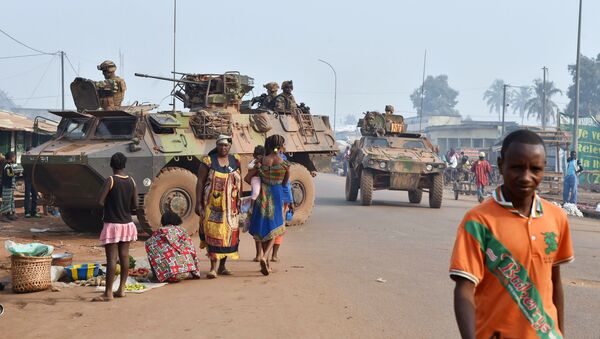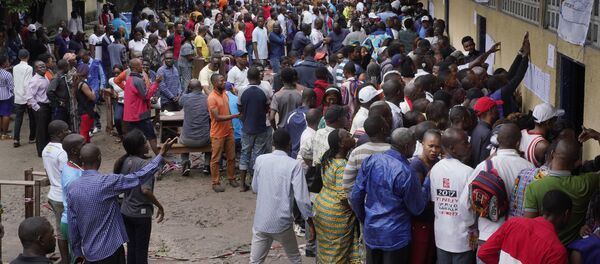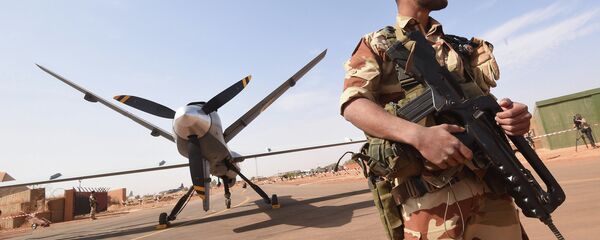"The agreement will be signed in Bangui on Monday or Tuesday", Nahayo said. The African Union-brokered negotiations between the CAR government and militant leaders began last week in Sudan and ended on Saturday.
The parties to the African Union-brokered talks in the Sudanese capital agreed on a mixed-border security mechanism between Bangui, the armed groups and the UN mission to the crisis-torn country.
READ MORE: African Union Encourages Russia to Participate in CAR’s Future Peace Conference
“They agreed on mixed mechanism between MINUSCA [UN Multidimensional Integrated Stabilization Mission], the government, UN troops, and some people from armed groups and national forces where they can be deployed. [This mechanism] will secure the borders and to keep safe the animals which are passing through some areas”, Adolphe Nahayo said.
The CAR government and armed groups also agreed to appoint a special commission to track all crimes committed beginning in 2013.
"Now in justice they agreed that they will appoint a commission — armed groups and government — to account all the crimes which have been committed since 2013, during this crisis and they will make a report to a national commission of reconciliation, which will clarify which crime is against humanity, which crime can be a war crime, because those have to pass to the International Criminal Court. For the others it will be transitional justice. And between the work of that commission there will be no judicial action", Adolphe Nahayo said.
READ MORE: UN Condemns Killing of Peacekeeper in Central Africa's Bangui
According to Nahayo, the president of the Central African Republic (CAR), Faustin-Archange Touadera, will appoint a new prime minister one week after the signing ceremony for the peace accord.
“Now, when the agreement is done, the president will appoint a new prime minister and they will compose a new, inclusive government. [The appointment] will take place as soon as possible […] A week after [the peace agreement is signed] they are supposed to appoint a new prime minister”, Nahayo said.
The African Union-led talks that commenced January 24 are the first direct talks between the government of CAR and 14 opposition groups. The CAR government sent a delegation of senior ministers to the talks, led by the president’s chief of staff, Firmin Ngrebada.
In August 2018, the two groups agreed to establish a platform for consultations on sustainable peace in CAR. The groups then also called on the government to engage in reconciliation with support from Russia, the European Union and other regional and international powers.
The Russian Foreign Ministry said in late October that it intended to maintain assistance to CAR in rebuilding its armed forces. The ministry said that in early 2018 Moscow supplied CAR's army with small arms and ammunition as well as sending 175 military advisers to train CAR servicemen.
Meanwhile, the UNSC unanimously voted for an extension of the arms embargo against CAR, for an additional year.
Under a draft resolution sponsored by France, the UNSC established benchmarks to meet met by the end of April, including reforming the government’s security sector, disarming and demobilizing militias, and managing weapons, as a means of lifting the embargo. If the CAR government meets key benchmarks by September 30, the UNSC will reconvene to address easing the arms embargo measures, according to the text of the resolution released on Thursday.
READ MORE: UN Calls for End to Targeted Attacks on Civilians in Central Africa




